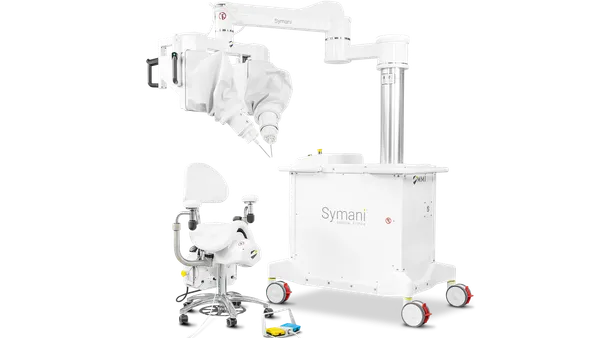Dive Brief:
-
A late-phase trial of Eli Lilly’s tau imaging agent flortaucipir F18 has met its two primary endpoints, the company said this week.
-
The results suggest the positron emission tomography (PET) imaging agent can predict brain tau pathology and Alzheimer's disease diagnosis.
-
Lilly plans to meet with the FDA to discuss the data as it seeks to hold off competition from rival tracers in development at Merck & Co., Roche and other companies.
Dive Insight:
The ability of physicians to understand what is going on inside the brains of people showing signs of dementia has started to increase over the past decade. In 2012, FDA cleared Avid's florbetapir for sale, giving physicians a way to differentiate between patients with Alzheimer's and other forms of dementia. Rival amyloid imaging agents soon followed florbetapir on to the market.
In parallel, Lilly, which bought Avid in 2010, and other companies have worked on agents for imaging tau, another hallmark of Alzheimer’s disease. Visualizing the tangling of tau proteins and the spread of these structures across the brain could yield insights into the progression of Alzheimer's disease.
Lilly is at the forefront of these efforts and now has late-phase data to support its case for the use of flortaucipir F18. The trial enrolled 156 end-of-life patients with dementia, mild cognitive impairment or normal cognition and performed flortaucipir PET imaging on them. Later, 67 of the patients were assessed post-mortem.
The assessments showed flortaucipir detected tau pathology of Braak Stage 5 and 6, the late points in the progression of Alzheimer’s when the disease invades the neocortex. Flortaucipir also detected a high level of total Alzheimer's disease neuropathologic change. In both cases, the sensitivity and specificity of the detection was statistically significant, resulting in the trial hitting its two primary endpoints.
"These encouraging results are a major advance in our ability to image the pathology of Alzheimer's disease," Mark Mintun, VP of pain and neurodegeneration R&D at Lilly, said in a statement. "We hope this and other advances in the field can help speed development of treatments, as well as provide more diagnostic information for doctors taking care of patients suspected of having Alzheimer's."
Lilly now plans to discuss the data with the FDA as it seeks to keep flortaucipir ahead of rival tau PET tracers. Johnson & Johnson, Merck, Roche and Piramal Imaging all have rival assets in development










